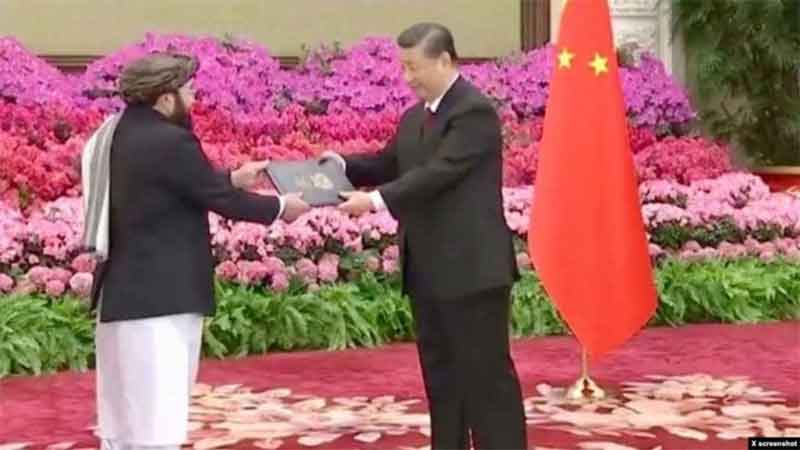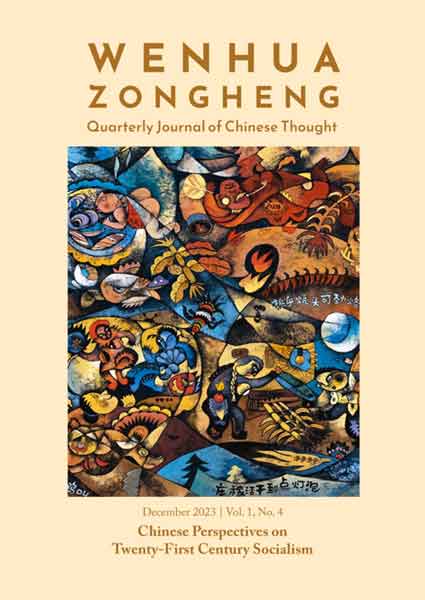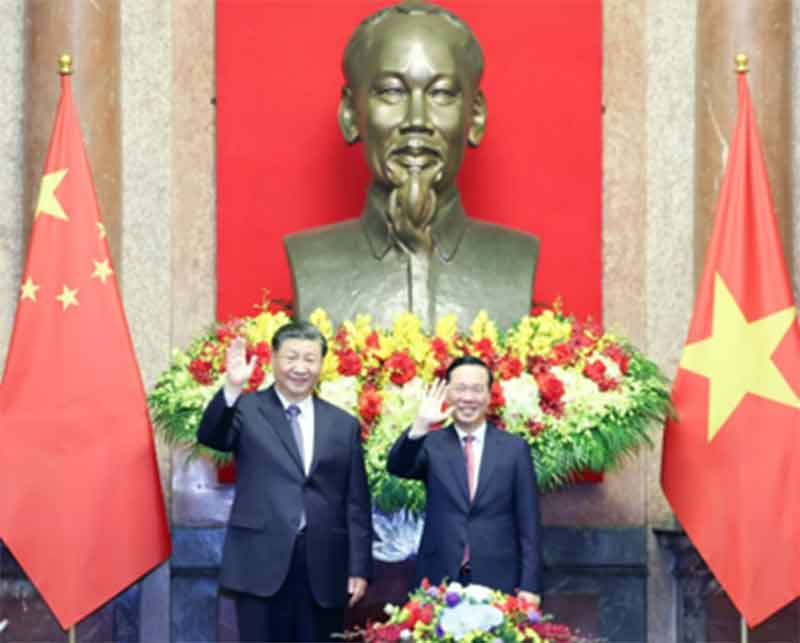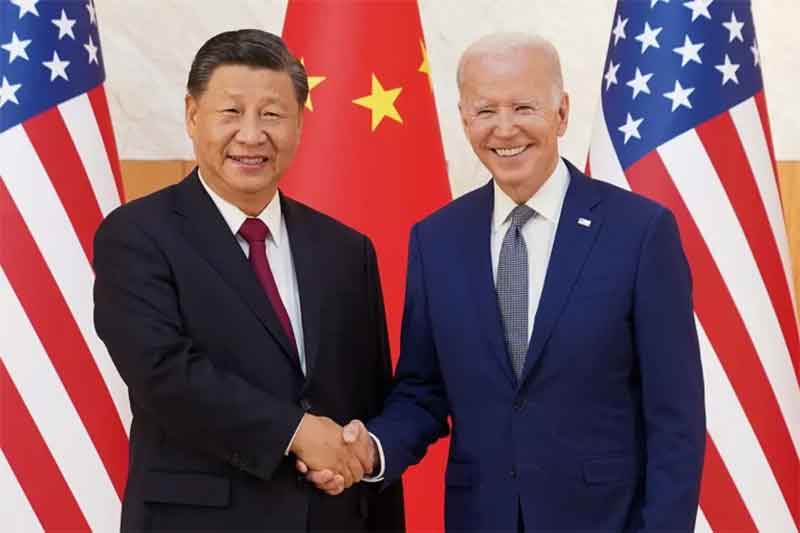
My question is this. When war inevitably breaks out between competing imperialists, the US and China, will there be “leftists” who, because they oppose the US ruling class, take the side of China? It seems that way, based on their current defense of China as a socialist of communist state. Some are even defending the Russian rulers against the reactionary leaders of Ukraine because Russia was once a socialist state.
Unfortunately, we must recognize the failure of past revolutions to achieve their goals and see that the present autocracies in Russia and China are not what we should emulate. No doubt, this failure has left the workers of the world in a confused and discouraged condition and provides some of the explanation of why the massive crises we face of climate change, economic hardship, racist oppression and escalating wars have met with such inadequate opposition and a failure to blame capitalism. But name capitalism as the culprit we must, as we try to understand the failures of past revolutions and how to avoid their errors. What we can emulate is that the Soviets and the Chinese communists won millions to overthrow their rulers, without allying with any imperialists as they did so.
The Brightness of the Past
It was only a little over a century ago that the workers of the world were inspired by the Bolsheviks, who seized power rather than fight an imperialist war. Under their leadership a workers’ state was established, despite efforts to destroy it by internal and external enemies, including an invasion by the US and many other nations. They went on to massively industrialize, collectivize agriculture, institute many aspects of worker control in workplaces, and provide universal education and health care. The dedication of the working class to building socialism and fighting fascism led to the USSR playing the major role defeating Hitler in World War II.
Unfortunately, from early on many compromises with capitalism were made, as the victorious revolutionaries believed communism would be achieved only far in the future after a period of socialism, a mixed economy. In order to try and insure peaceful co-existence with the capitalist West, armed revolutionary struggles by international communist parties were discouraged, mistakes which, among others, led to the full-scale return to capitalism in the Soviet Union in 1991.
Several decades after the Russian revolution, in 1949, China also followed a revolutionary path. Millions of poor peasants advanced from a life of poverty, starvation and disease to one of health, literacy, and collective control over their own lives. Unfortunately, many of the same errors made in the USSR were copied in China, and after the defeat of the Cultural Revolution in 1976, Deng Xiaoping openly initiated the transition to capitalism. This is, of course, a tremendous oversimplification, but the point here is to emphasize that both Russia and China have devolved from the attempt to build communism into exploitative, repressive capitalist states.
China is Capitalist
We will focus mainly on China as Russia no longer claims to be communist, even though it is sometimes defended as a former socialist state. But China, under the leadership of its Communist Party, has become as cruel an exploiter of its own workers and of workers around the world as were the colonialists of the past or western imperialists today.
The domestic Chinese economy involves state-owned and private companies, with 60% of output coming from the private sector, although the state does play a major role in regulating private capital and in public planning. The vast supply of cheap labor has led to massive foreign investment of capital.1 By the early 2000s, workers had begun to protest their long hours and low wages and were granted some concessions, although their leaders were usually fired. However, especially since Xi Jinping took power in 2012, repression of has increased. Independent labor organizations were rigidly repressed, surveillance and online censorship grew, and arrests increased.2 Only state-run labor organizations are now allowed, whose role is to pass down Party directives and prevent labor unrest.3
China today is facing an internal financial crisis manifest by over 20% unemployment among young people, a massive oversupply of housing, and a falling growth rate. Nor are workers well treated. Although 96% have health insurance, it has very limited coverage for out-patient care or medications.4 Schooling is free for only nine years. Workers who migrate from the countryside to cities for work are never recognized as official urban dwellers and face discrimination in housing, employment, health care and education. Many are resettled involuntarily when their village land is wanted for urban or industrial development.5 As in many capitalist countries, building collapses during earthquakes or due to gas explosions are not uncommon in China, due to weak safety and construction standards as well as corruption among officials tasked with enforcement.6
Perhaps the most notorious aspect of China’s current domestic policy is the attack on the Uyghur Muslim Turkic-speaking minority, one to two million of whom have been imprisoned for “re-education” after a few committed terrorist acts. In fact, the likely basis for this persecution is the fact that the Uyghurs inhabit Xingiang province, one-sixth of China’s land area, that contains vast oil and coal reserves among other resources. It also happens to sit at the heart of the area needed for the Belt and Road Initiative, a plan to build transportation and pipeline links from China to three continents and 60% of the world’s population.7
China’s Worldwide Exploitation
China dominates the world’s supply chains of minerals needed to produce “clean” energy – electric car batteries, solar panels, cell phones, and other electronics – accounting for 60% of world-wide production and 85% of processing capacity. China is well entrenched in Africa and is dominant in Democratic Republic of Congo (DRC), Guinea, Zambia, South Africa, Zimbabwe. In DRC, over 40,000 children dig cobalt, lithium and other rare earth elements out of the earth with their hands and shovels and many die every year from accidents and the effects of pollution and poverty. DRC supplies 70% of the world’s cobalt, and China either owns or has a stake in nearly all the mines. In the Central African Republic (CAR) many people die from mercury poisoning related to Chinese gold mining.8,9
In 2021-2, the Business & Human Rights Resource Center named 102 abuses linked to Chinese mining, including Indigenous rights violations, attacks against grassroots leaders, water pollution, ecosystem destruction and unsafe working conditions. Copper and nickel mines were the chief offenders. The worst conditions were found in Indonesia where China owns 50 factories, followed by copper mining in Peru, but China also has investments in Argentina, Bolivia, Brazil, Chile, Colombia, Ecuador, Mexico, and Venezuela.1,10,11
By 2015, China was the third largest foreign investor in the world. They may claim they are investing in development as opposed to exploitation, but in truth the devastation wreaked on local populations is as bad as that of the colonial era or by the IMF. China has also now established a new banking system, BRICS, which is about to expand from Brazil, Russia, India, and South Africa to include such repressive countries as Iran, Egypt and Saudi Arabia.1
Revolution Gets a Bad Name
The lack of success in achieving a communist society has been a blow to workers around the world and a boon to international capitalism. To many workers who recognize that communist revolutions have turned back to authoritarian capitalism, it is proof that it is impossible to build communism and not worth trying. Capitalist leaders espouse this point of view, adding that the problem lies within human nature – greed and individualism – and cannot be overcome. Other capitalists claim that what exists in Russia and/or China today actually is communism, and thus one can see what an evil system it is. Only a few of us say that it is possible to see in retrospect what some of the mistakes, as well as the successes, in building communism were, so that we can avoid these errors in the future. Mistakes like a period of socialism, in which many capitalist practices like wage and work differentials are maintained, nationalism, and compromises with “progressive” capitalists are just a few.
But what is of great disservice to workers’ struggles around the world is the defense of present day China as socialist or communist by “left” groups, which serves the same purpose as ruling class anti-communism. Since it is obvious that there is nothing desirable in how this nation now operates, we have no reason to want what we see there today. If that’s communism, why fight for it? It is a failure at best, or worse, it is evil.
For some of these confused “leftists,” it’s an analysis that boils down to the enemy of my enemy is my friend. But what sense does that make? There are many evil entities, like the government of Iran, that are US enemies, but must we therefore claim them as friends? (Actually, Workers World Party supported Saddam Hussein on this basis!) The world is today made up of competing capitalists, none of which has the interests of workers in mind. Our job is to unite the workers of all capitalist nations, be they allies or foes, to together overthrow this system. We do not have to, we must not, choose between our enemies.
Lessons of the World’s Workers
Thus we must not tolerate the myth that China is a communist nation, or others like Venezuela or Nicaragua that we have not discussed here. Our task is to remember and struggle for the initial goals of communist revolution – equality, production for need without profits, worker control, an end to racism, sexism and nationalism – and reinvigorate the struggle for those goals. We must strive to understand how previous revolutions failed to achieve a communist society and became authoritarian capitalist states. If we do this we can reinvigorate the class struggle, a necessity to save ourselves from capitalist destruction. If we do not, we become so confused that we take sides in inter-imperialist wars, we try and convince “good” capitalists to be on our side – in short, we give up the struggle. Let’s not. Our lives depend on it.
Ellen Isaacs is a physician and an anti-racist and anti-capitalist activist and co-editor of multiracialunity.org. She can be reached at [email protected]
- https://thephilosophicalsalon.com/the-unbearable-manicheanism-of-the-anti-imperialist-left/
- https://jacobin.com/2023/04/china-workers-labor-movement-left-state-repression
- https://thechinaproject.com/2021/09/30/labor-unrest-and-how-china-balances-repression-and-responsiveness/
- https://www.nytimes.com/2023/02/23/business/china-health-insurance-explained.html
- https://www.sciencedirect.com/science/article/abs/pii/S0264837719307501
- https://www.aljazeera.com/news/2022/5/1/nine-detained-over-china-building-collapse-police
- https://jacobin.com/2019/06/china-uyghur-persecution-concentration-camps
- https://www.wilsoncenter.org/blog-post/examining-chinas-impact-mining-africa-critiques-and-credible-responses
- https://www.usip.org/publications/2023/06/challenging-chinas-grip-critical-minerals-can-be-boon-africas-future
- https://www.nytimes.com/2023/08/18/business/indonesia-nickel-sulawesi-china.html
- https://www.theguardian.com/world/2023/jul/05/china-mineral-mining-green-energy














































